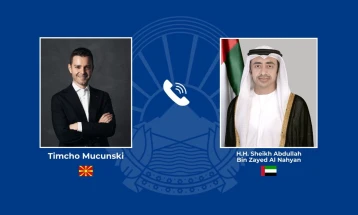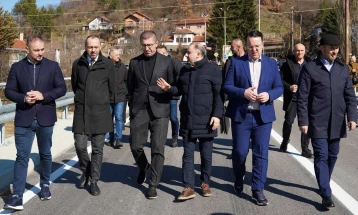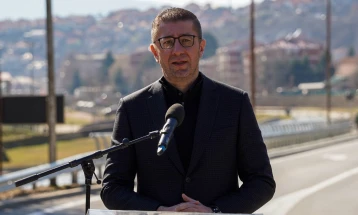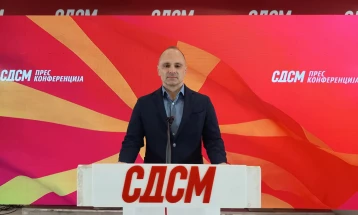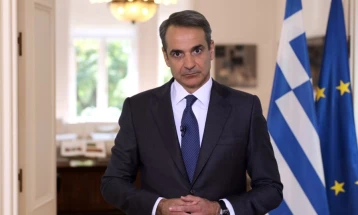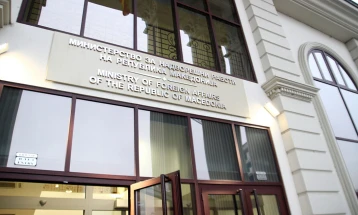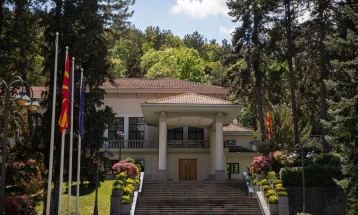21st anniversary of Ohrid Framework Agreement
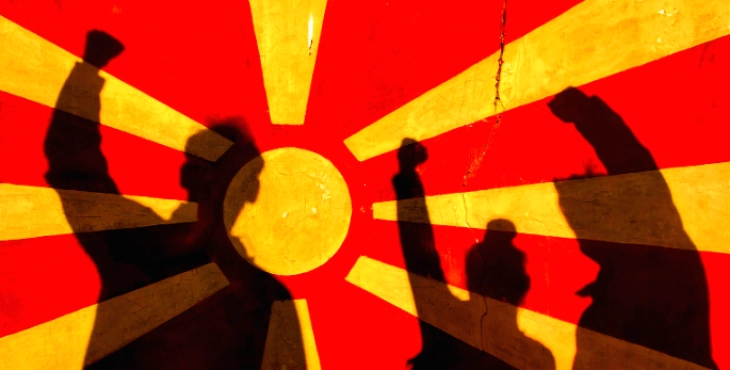
Skopje, 13 August 2022 (MIA) - This year's celebration of the anniversary of the signing of the Ohrid Framework Agreement, which put an end to the 2001 conflict in the country, began on Friday by awarding certificates to the participants of the School for Young Leaders "Peace Forum Dialogue" by the First Deputy Prime Minister and Minister of Political System and Inter-Community Relations Artan Grubi.
In his address at the ceremony, Grubi pointed out that the benefits of the Ohrid Agreement are visible in the concept of an equal society for all.
Today, after 21 years, the state takes care of the communities that live in it and all communities have become equal because the Albanians, Macedonians, Serbs, Bosniaks and others living together in one country, it is committed to the security and the Euro-Atlantic perspective, Grubi noted, pointing out that today the country is a NATO member and last month it started EU accession talks.
Following days of negotiations in Ohrid, the Ohrid Framework Agreement was signed in Skopje on August 13, 2001. Then President Boris Trajkovski, former Prime Minister and VMRO-DPMNE leader Ljubcho Georgievski, as well as SDSM, DPA and PDP leaders, Branko Crvenkovski, Arben Xhaferi and Imer Imeri respectively, signed the treaty.
The EU and US special representatives, Francois Leotard and James Pardew, respectively, signed the document on behalf of the international community.
In the negotiations that started in July in Skopje and then continued in Ohrid, several advisors and experts were consulted, and in certain articles issued over the years, Ali Ahmeti, who at that time led the NLA, was also consulted.
The basic principles of the Ohrid Agreement state that “the use of violence in pursuit of political aims is rejected completely and unconditionally.”
“Only peaceful political solutions can assure a stable and democratic future for Macedonia. Macedonia's sovereignty and territorial integrity, and the unitary character of the State are inviolable and must be preserved. There are no territorial solutions to ethnic issues. The multi-ethnic character of Macedonia's society must be preserved and reflected in public life. A modern democratic state in its natural course of development and maturation must continually ensure that its Constitution fully meets the needs of all its citizens and comports with the highest international standards, which themselves continue to evolve. The development of local self-government is essential for encouraging the participation of citizens in democratic life, and for promoting respect for the identity of communities,” the document states.
More than 130 laws and amendments have been passed over the years, most of which referring to non-discrimination and just representation, identity, culture, education and power decentralization.
The Secretariat for the Implementation of the Ohrid Framework Agreement, a government institution in charge with the agreement, was set up, which later on developed into the Ministry of Political System and Inter-Community Relations.
